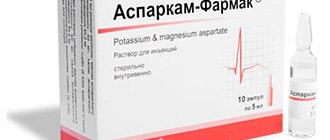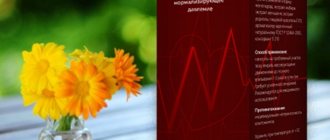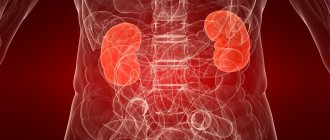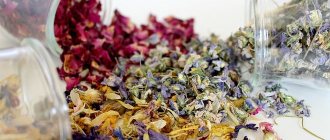Pain or fever may appear suddenly, causing a person a lot of discomfort. Combination drugs cope more successfully with different types of pain, inflammation and hyperthermia. What Askofen helps with and how many tablets you need to take to achieve the effect, we will consider further.
Release form, composition
Currently, Askofen is presented in pharmacies in two forms: Askofen-P and Askofen ultra. Both drugs are available only in tablets and have the same composition. The only difference is in the dosages.
- Askofen-P contains 200 mg of paracetamol, 40 mg of caffeine and 200 mg of acetylsalicylic acid;
- Askofen Ultra contains 250 mg of paracetamol, 65 mg of caffeine and 250 mg of acetylsalicylic acid;
Excipients include potato starch, stearic acid, calcium stearate, povidone, talc, petroleum jelly and silicone emulsion. The tablets have a white or white-pink color, a flat cylinder shape, a chamfer and a score, a slight or no odor is allowed, and a marbled color.
Sold 10 or 20 pieces per pack.
Side effects after Askofen
Side effects from using Askofen as a medicine:
- May lower blood pressure.
- Diarrhea.
- Pain in the heart area.
- Headache.
- Hycoagulation.
- Nausea.
- Sleep disturbance.
- Cardiopalmus.
- Tinnitus.
- Vomit.
- Dizziness.
In case of overdose, various side effects are observed. In such a situation, you should immediately call an ambulance.
Askofen is not intended to increase blood pressure in people with hypotension. To normalize your blood pressure, you should first consult a doctor to prescribe therapy and medications to take in emergency situations. This is the only way to constantly feel good and not feel low blood pressure throughout the day. Self-medication rarely leads to positive results, but only temporarily relieves symptoms.
How does Askofen work?
The medication belongs to the group of non-narcotic analgesic drugs. It has anti-inflammatory, analgesic and psychostimulating effects due to the action of its constituent components:
- acetylsalicylic acid fights inflammation, relieves pain, reduces high fever, and prevents blood clotting;
- paracetamol reduces pain and relieves fever; in combination with acetylsalicylic acid, they enhance each other’s effect;
- caffeine stimulates respiratory function, increases blood pressure and heart rate.
Description and characteristics of Askofen
Askofen belongs to drugs with a combined spectrum of actions. Works as an analgesic, antipyretic and anti-inflammatory in the body.
Take your tablet when:
- Heat.
- Headache and teeth.
- Cramps during menstruation.
- Muscle pain.
The drug contains several active ingredients:
- Aspirin (has an analgesic effect).
- Caffeine (supports effectiveness and dilates blood vessels).
- Paracetamol (helps in the fight against pain and neglect).
Due to the presence of caffeine in other substances, the effect is enhanced. Askofen is considered an analogue of citramon. Only the dosage of the ingredients of this medicine has been changed.
What diseases will Ascofen help with?
Regardless of the type of medication, tablets are prescribed for:
- mild or moderate pain in adults (toothache and headache, neuralgia, myalgia, migraine, lumbago);
- hyperthermia against the background of acute respiratory viral infections or inflammatory diseases of bacterial origin in adults and adolescents from fifteen years of age.
Askofen P has the following indications for use:
- mild to moderate pain, including during menstruation;
- fever with acute respiratory infections and influenza.
At what pressure is the drug taken?
For arterial hypertension, you can take tablets in small quantities for different origins or at different temperatures if there is no other pain reliever. If you have high blood levels, you can take it if the tablets are prescribed by your doctor. The drug slightly increases blood pressure, and its effect directly depends on the individual characteristics of the body. People with hypertension have mixed reactions to the drug.
For some, using it will be undefeated and the pressure will be normal, and some may feel worse after integrating it. When it comes to health, it's best to play it safe.
The caffeine content in askofene is only 0.04 mg. To significantly increase blood pressure, drink 5 tablets at a time. But in such doses you cannot take the drug, so we can say that askofen is useless for low blood pressure in most cases. The tablets contain no substances that increase blood pressure.
Instead of using medications, if well-being is not critical, it is better to walk more, sleep and eat well to increase and indicate well-being. Regular physical activity will help improve your blood pressure. For people with hypotension, more traffic is recommended so that the blood constantly circulates around the body and does not accumulate in one place. A sedentary lifestyle and staying indoors are often contraindicated to the use of antihypertensive drugs.
Ginseng or Eloterococa tincture will help fight low blood pressure. These herbal agents are taken in the morning. Tons and efficiency increase, reduce drowsiness and apathy.
Cautions for use
Instructions for use of Askofen contain an extensive list of contraindications:
- hypersensitivity to aspirin and other non-steroidal anti-inflammatory drugs;
- age up to 15 years;
- intolerance to any substance contained in the medication;
- severe dysfunction in the kidneys or liver;
- erosions and ulcers of the gastrointestinal tract, occurring in acute form;
- tendency to gastrointestinal bleeding, their presence in the anamnesis;
- bronchial asthma, which developed while taking aspirin or other non-steroidal anti-inflammatory drugs;
- enzyme deficiency;
- excessive excitability, problems falling asleep, panic attacks;
- states of increased bleeding;
- aortic aneurysm with the onset of dissection;
- increased intraocular pressure;
- pathologies of the cardiovascular system (coronary artery disease, hypertension, tachycardia).
Increased caution should be exercised when using if there is one of the diagnoses: ulcer, high urate content in the urine, gout, severe heart failure.
Askofen-P® (Ascophen-P)
Acetylsalicylic acid
Other non-steroidal anti-inflammatory drugs:
Increased damaging effect on the mucous membrane of the gastrointestinal tract (GIT), increased risk of developing gastrointestinal bleeding. If simultaneous use is necessary, it is recommended to use gastroprotectors for the prevention of NSAID-induced gastrointestinal ulcers, therefore simultaneous use is not recommended.
Glucocorticosteroids:
Increased damaging effect on the gastrointestinal mucosa, increased risk of gastrointestinal bleeding. If simultaneous use is necessary, it is recommended to use gastroprotectors, especially in persons over 65 years of age, therefore simultaneous use is not recommended.
Oral anticoagulants (for example, coumarin derivatives):
Acetylsalicylic acid (ASA) may potentiate the effect of anticoagulants. Clinical and laboratory monitoring of bleeding time and prothrombin time is necessary. Simultaneous use is not recommended.
Thrombolytics:
Increased risk of bleeding. The use of ASA in patients within the first 24 hours after an acute stroke is not recommended. Simultaneous use is not recommended.
Heparin:
Increased risk of bleeding. Clinical and laboratory monitoring of bleeding time is required. Simultaneous use is not recommended.
Platelet aggregation inhibitors (ticlopidine, paracetamol, clopidogrel, cilostazol):
Increased risk of bleeding. Clinical and laboratory monitoring of bleeding time is required. Simultaneous use is not recommended.
Selective serotonin reuptake inhibitors (SSRIs):
Concomitant use may affect blood clotting or platelet function, resulting in an increased risk of bleeding in general, and gastrointestinal bleeding in particular, so concomitant use is not recommended.
Phenytoin:
ASA increases the plasma concentration of phenytoin, which requires its monitoring.
Valproic acid:
ASA disrupts its binding to plasma proteins and, therefore, can lead to an increase in its toxicity. Monitoring of plasma concentrations of valproic acid is necessary.
Aldosterone antagonists (spirolactone, canrenoate):
ASA may reduce their activity due to impaired sodium excretion; proper control of blood pressure is necessary.
Loop diuretics (eg furosemide):
ASA can reduce their activity due to impaired glomerular filtration caused by inhibition of prostaglandin synthesis in the kidneys.
Concomitant use of nonsteroidal anti-inflammatory drugs (NSAIDs) may lead to acute renal failure, especially in dehydrated patients.
If diuretics are used concomitantly with ASA, ensure the patient is adequately rehydrated and monitor renal function and blood pressure, especially when diuretic treatment is initiated.
Antihypertensive drugs (ACE inhibitors, angiotensin II receptor antagonists, slow calcium channel blockers):
ASA may reduce their activity due to inhibition of prostaglandin synthesis in the kidneys. Concomitant use may lead to acute renal failure in elderly or dehydrated patients. If diuretics are used concomitantly with ASA, it is necessary to ensure adequate rehydration of the patient and monitor renal function and blood pressure. When used concomitantly with verapamil, bleeding time should be monitored.
Uricosurics (eg probenecid, sulfinpyrazone):
ASA can reduce their activity by inhibiting tubular reabsorption, leading to high plasma concentrations of ASA.
Methotrexate ≤ 15 mg/week:
ASA, like all NSAIDs, reduces the tubular secretion of methotrexate, increasing its plasma concentration and, thus, toxicity. In this regard, the simultaneous use of NSAIDs in patients receiving high doses of methotrexate is not recommended (see section "Contraindications"). In patients taking low doses of methotrexate, the risk of interaction between methotrexate and NSAIDs should also be considered, especially if renal function is impaired. If combination therapy is necessary, it is necessary to monitor a general blood count, liver and kidney function, especially in the first days of treatment.
Sulfonylureas and insulin:
ASA enhances their hypoglycemic effect, therefore, when taking a high dose of salicylates, it may be necessary to reduce the dose of hypoglycemic drugs. It is recommended to monitor blood glucose levels more often.
Alcohol
:
Increases the risk of gastrointestinal bleeding; simultaneous use should be avoided.
Paracetamol
Inducers of liver microsomal enzymes or potentially hepatotoxic substances (for example, alcohol, rifampicin, isoniazid, hypnotics and antiepileptic drugs, including phenobarbital,
phenytoin and carbamazepine
):
Increased toxicity of paracetamol, which can lead to liver damage even at non-toxic doses of paracetamol, therefore liver function should be monitored. Simultaneous use is not recommended.
Chloramphenicol
:
Paracetamol may increase the risk of increased chloramphenicol concentrations. Simultaneous use is not recommended.
Zidovudine
:
Paracetamol may increase the tendency to develop neutropenia, and therefore hematological parameters should be monitored. Simultaneous use is possible only with the permission of a doctor.
Probenecid
:
Probenecid reduces the clearance of paracetamol, which requires a reduction in the dose of paracetamol. Simultaneous use is not recommended.
Indirect anticoagulants:
Repeated use of paracetamol over a period of more than one week increases the anticoagulant effect. Occasional use of paracetamol has no significant effect.
Propantheline and other drugs that slow down gastric emptying:
Reduce the rate of absorption of paracetamol, which may delay or reduce rapid pain relief.
Metoclopramide and other drugs that accelerate gastric emptying:
Increases the rate of absorption of paracetamol and, accordingly, the effectiveness and onset of analgesic action.
Cholestyramine
:
Reduces the rate of absorption of paracetamol, therefore, if maximum analgesia is necessary, cholestyramine is taken no earlier than 1 hour after taking paracetamol.
Caffeine
Hypnotics (eg, benzodiazepines, barbiturates, H1 blockers):
Concomitant use may reduce the hypnotic effect or reduce the anticonvulsant effect of barbiturates, so concurrent use is not recommended. If simultaneous use is necessary, it is advisable to take the combination in the morning.
Lithium
:
Caffeine withdrawal may increase plasma lithium concentrations because caffeine increases the renal clearance of lithium, so lithium dosage reduction may be necessary when caffeine is withdrawn. Simultaneous use is not recommended.
Disulfiram
:
Patients being treated with disulfiram should be warned to avoid caffeine to avoid the risk of worsening alcohol withdrawal syndrome due to the stimulating effects of caffeine on the cardiovascular and central nervous systems.
Ephedrine-like substances:
Increased risk of developing drug addiction. Simultaneous use is not recommended.
Sympathomimetics or levothyroxine:
Due to mutual potentiation, they can enhance the chronotropic effect. Simultaneous use is not recommended.
Theophylline
:
Concomitant use reduces the excretion of theophylline.
Antibacterial drugs from the quinolone group, enoxacin and pipemidic acid, theobinafine. cimetidine, fluvoxamine and oral contraceptives:
Increased half-life of caffeine due to inhibition of hepatic cytochrome P450, therefore patients with impaired liver function, cardiac arrhythmias and latent epilepsy should avoid caffeine.
Nicotine, phenytoin and phenylpropanolamine:
Reduces the terminal half-life of caffeine.
Clozapine
:
Caffeine increases clozapine serum concentrations, likely through both pharmacokinetic and pharmacodynamic mechanisms. Monitoring of serum concentrations of clozapine is necessary. Simultaneous use is not recommended.
Dosage regimen
The tablets are taken orally after meals. You can use water for drinking, but milk or alkaline mineral water is better.
Schemes depend on the type of tablets.
Askofen P according to the instructions is taken twice or thrice a day, one or two tablets, no more than six tablets per day with an interval of four hours. For renal pathologies - with an interval of six hours.
Askofen Ultra as an analgesic is taken one tablet at an interval of 4-6 hours.
For fever - two tablets at intervals of 6 hours. The maximum number of tablets per day is six.
For pain relief, it is allowed to take a maximum of five days, to reduce a high temperature - a maximum of three.
What kind of blood pressure do tablets help with?
Most doctors do not believe that the drug has much effect on blood pressure. However, many people suffering from hypotension report a positive effect in causing their blood pressure to drop. Ascophen tablets are not recommended for use if you have high blood pressure due to the caffeine content they contain. Askofen does not reduce blood pressure, and its use is contraindicated in patients with hypertension, especially on a regular basis. Tablets can cause a hypertensive crisis.
For low blood pressure, the drug helps improve well-being, it relieves pain and dizziness, it affects weakness and apathy. Should be taken during climate change because during this hypothetical period they feel especially bad. But the pills belong to emergency measures, not to drugs. Therefore, it is not recommended to drink it constantly, lowering blood pressure. If possible, it is better to refuse to take the drug with a mortgage.
Instructions for use are included in the packaging. Gives dosage tablets depending on the purpose of use. Ascophene for low blood pressure is not always effective because it is not intended for use by hypotensive people with low blood pressure. And its scope does not include stabilizing low blood pressure.
Conclusion
The drug can be used simultaneously for both hypertension and hypotension. Its main effect is to stabilize blood pressure by irritating the blood by inhibiting red blood cell aggregation. But some doctors recommend not drinking it if you have arterial hypertension, since it contains caffeine.
Askofen is used for isolated cases of hypertension. If the patient's condition is observed in the chronic phase, use is unacceptable. Caffeine causes vasospasm, which increases blood pressure even more. Therefore, in a hypertensive patient, the indicators can rise to critical values, causing negative consequences for the cardiovascular system and other tissues.
If the patient has arterial hypotension, the drug will benefit him. This is due to the following effects:
- improvement of vascular endothelial tone;
- normalization of nervous activity;
- a surge of vigor and strength.
Advertising:
A hypotensive person will feel much better, more energetic, and the loss of strength will be eliminated.
If the patient suffers from arterial hypotension, a decrease in pressure occurs when there is a difference in atmospheric pressure or a sudden change in weather. Such patients are often prescribed Askofen to reduce meteosensitivity. Blood pressure becomes more stable and stops fluctuating under the influence of external factors. There is no deterioration in health.
Many therapists do not recommend using medications for arterial hypotension to prevent negative effects on blood vessels. But Askofen contains only natural active ingredients that do not negatively affect the cardiovascular system. Askofen stabilizes all parameters. If its action becomes insufficient, therapists advise using plant extracts. For example, ginseng, eleutherococcus. Ginseng has the following properties:
- contains a large amount of vitamins, microelements, minerals, nutrients;
- improving the functioning of the heart muscle;
- increased blood pressure;
- increased tone of the vascular endothelium.
When consuming plant extracts, there is a tonic effect on the cardiovascular system without negative effects. The body is rejuvenated, there are no side effects.
Pharmacological effects of Eleutherococcus:
Advertising:
- increased activity of the vascular wall;
- stabilization of blood pressure parameters;
- activation of metabolic activity;
- stabilization of the nervous system.
To keep the patient active throughout the day, it is recommended to use the herbal extract in the morning, immediately after waking up. But first you need to read the instructions to prevent side effects.
Therapists give general recommendations for patients suffering from changes in blood pressure.
- Long walks in the fresh air to saturate the body with oxygen.
- Quitting smoking and frequent alcohol consumption.
- Eating foods that saturate the body with vitamins, microelements, and minerals.
- Drink at least 2 liters per day to stabilize the water balance.
- Adequate physical activity corresponding to the state of the body. Running, swimming, yoga or Pilates are recommended.
- Adequate sleep, periodic rest when you lose strength.
- Drinking strong tea and coffee in the morning, if the patient feels a lack of energy, his blood pressure decreases. Chicory can also be used for these purposes; it contains a large amount of caffeine.
Advertising:
Therapists advise using drug therapy only if all of the above methods do not help, the patient still develops loss of strength and low blood pressure.
Many doctors fear that chronic use of caffeine-based medications may lead to a negative reaction. The vascular endothelium will be under excessive tension, which can provoke arterial hypertension. Therefore, Askofen is prescribed only in rare cases when the patient’s well-being deteriorates significantly.
Possibility of use for hypertensive patients
Is it true that Askofen increases blood pressure and should you absolutely not take it if your blood pressure is high? The instructions do not say that the drug directly affects blood pressure levels, but it is still possible to draw a conclusion about the effect of the active components of the tablets on the body’s condition:
- acetylsalicylic acid - slightly thins the blood and promotes the expansion of capillaries, but does not have a direct effect on blood pressure levels;
- phenacetin – does not affect the functionality of blood vessels and the state of blood flow;
- paracetamol – slightly increases blood pressure, but is not indicated for combating hypotension;
- Caffeine is a substance that increases blood pressure; at low blood pressure, it helps to expand vascular tone and stabilize the hypotensive state.
It follows from this that not a single active component of the drug is capable of causing a sharp increase in blood pressure, except for caffeine, and even then, this substance can increase blood pressure by only a few mmHg.
However, for hypertension, if the doctor has prescribed these pills, the patient needs to keep blood pressure levels under control at all times. Stories that taking Askofen with high blood pressure provokes the onset of a hypertensive crisis are not confirmed by anything. Because the dose of caffeine contained in the drug is too small to produce such serious negative consequences.





